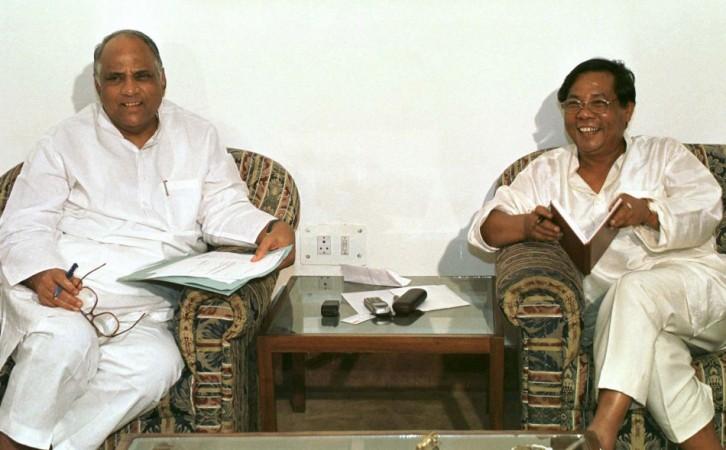
In an unexpected turn of events related to the upcoming Presidential poll, former Lok Sabha speaker and NCP leader PA Sangma has announced that he would not contest for the President post.
Sangma's announcement came as a surprise as it contradicts his earlier statement that he would contest as an independent candidate if necessary and not disappoint Tamil Nadu CM Jayalalitha and Odisha CM BJD chief Naveen Patnaik.
Jayalalitha and Naveen Patnaik unconditionally backed Sangma's candidature for the top post and even campaigned for him, seeking other parties' consensus.
However, Sangma is now reportedly lobbying for former President and scientist APJ Abdul Kalam's candidature. He suggested other parties to throw their weight behind Kalam's candidature, who was the first choice of BJP.
Commenting on his latest decision, Sangma said his only aim was to push for a tribal candidate and build a strong case for it. He also urged all political parties to stand united to build consensus for the presidential candidate, as reported by India Today.
Kalam has been gradually gaining support from all the sides as the presidential poll approaches. West Bengal CM and Trinamool Congress chief Mamata Banerjeee has also expressed her support for his candidature.
In spite of being a key ally of UPA government, she has vehemently opposed Congress' choice.
The NDA members have also started reaching out to other political party members in a deal to garner support for their choice.
Senior BJP leader LK Advani met Jayalalitha over the presidential poll and possibility of forming consensus over a candidate. However, NDA is likely to face trouble from its own allies. Reportedly, the JD(U) is not interested in Kalam's candidature.
Meanwhile, Congress party has been holding talks with its allies and like-minded political parties over the presidential poll. So far, it has managed to convince NCP leader Sharad Pawar and DMK chief Karunanidhi for its choice.
At present, Finance Minister Pranab Mukherjee has been seen as the favourite candidate of the Congress for the President's post.

















